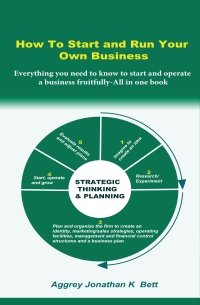Personal Saving and Investing
What Are the Purposes of Saving and Investing?
The two primary reasons for saving and investing are to create income streams to support current living income and to create cash or income-generating assets for retirement income. We also save to make money, riches and wealth for comfortable present and future living and to leave an inheritance for our children. In summary, the reasons for saving include multiplying and growing money, protecting money's value against inflation, creating multiple streams of income, having peace of mind, creating an emergency fund, buying an asset and household goods, creating an education fund, creating a fund for more significant investments, create retirement income and leaving an inheritance for children. Below is a rundown of the primary purposes of saving and investing:
How To Create an Effective Personal Financial Plan
Creating an effective personal financial plan involves steps you must follow. Define the kind of life you want to lead in the short, medium, long term, and retirement. It would help if you considered matters like career, family, financial and wealth, education, attitude, character, friendships, public service, enjoyment and relationship with God. It would be best to consider where and how you want to live in retirement. Once you have defined your vision, you assess your current financial status to see how to improve income and contain expenses, establish goals to attain, prepare a spending budget, select savings and investment options, prepare and follow a plan (roadmap), monitor and evaluate progress regularly and consult financial planning experts where you are unsure. Below is a rundown of the steps: Creating an effective personal financial plan involves steps you must follow. Define the kind of life you want to lead in the short, medium, long term, and retirement. It would help if you considered matters like career, family, financial and wealth, education, attitude, character, friendships, public service, enjoyment and relationship with God. It would be best to consider where and how you want to live in retirement. Once you have defined your vision, you assess your current financial status to see how to improve income and contain expenses, establish goals to attain, prepare a spending budget, select savings and investment options, prepare and follow a plan (roadmap), monitor and evaluate progress regularly and consult financial planning experts where you are unsure. Below is a rundown of the steps:
What is Personal Financial Planning-Definition, Purpose and Benefits
Personal financial planning is an exercise an individual or a household performs regularly to manage their income, spending, savings, and investments to attain specific desired goals, including income for daily living now and in the future. This exercise helps you create wealth during your working life and allocate it prudently after you retire and your death. A plan allows you to consider and have a clear view of your financial situation, and with the assessment, you can make a plan. The plan creates a roadmap and discipline, which helps you steer through daily and unforeseen events without wavering until you achieve the goals. The ultimate purpose of financial planning is to develop saving and investment steps to generate financial self-sufficiency in your current and retirement living. Personal financial planning ensures you think through your dreams and have a financial and action roadmap; with a roadmap, you are more likely to have goals and steps to implement them.
How to Invest in Treasury Bills and Bonds in Kenya
How to Invest in Treasury Bills and Bonds (T-Bills and T-Bonds) in Kenya
Kenya government Treasury bills bonds (T-bills and T-bonds) are investment instruments auctioned weekly by the Central Bank of Kenya (CBK) on behalf of the Government. The Government uses the instruments to borrow money from the public to finance its activities. Therefore, the investors become lenders to the Government and in return, the Government pays them interest and returns the principal upon maturity. T-bills have tenures of 91,182 and 364 days, while the terms for T-bonds are two years or more. All citizen and non-citizen individuals and organizations can buy Kenya T-Bills and Bonds. Buying and selling the securities is an online process. To participate, you visit https://dhowcsd.centralbank.go.ke/ or download the DhowCSD app on the Google Play store or Apple App Store to create a CSD account, https://www.centralbank.go.ke/dhowcsd/ and https://www.centralbank.go.ke/securities/treasury-bills/ to see guidelines and to:
- Open a CBK DhowCSD Account and provide investor details.
- Decide what to buy, how much and what price.
- Complete and submit bids.
- Obtain the T-bill and bond auction results.
- Pay for your successful bids. This process is automatic, following the details you provided in (1) above.
What is personal financial planning?
People ask what is personal financial planning and how it differs from corporate financial planning. Personal financial planning is about what an individual or a household does to plan their finances, while corporate financial planning is about preparing a financial plan for a business entity. Personal financial planning is an exercise an individual or a household performs regularly to manage their income, spending, savings, and investments to attain specific desired goals for now and in the future. The process also incorporates planning one’s present and retirement lifestyles, such as what to do besides one’s career, what to do in retirement, and how to finance all these lifestyles. It essentially entails active identification and generation of income streams, allocating part of the income for current needs, wants, emergencies and other requirements and saving and investing to create wealth for comfortable current and retirement living. Planning should also look at managing different areas of life, such as estate planning, career, family, children’s education, body, mind, soul, enjoyment, friendships and public service. Planning aims to create a roadmap for navigating all these facets to arrive at the desired destination in an orderly manner.

